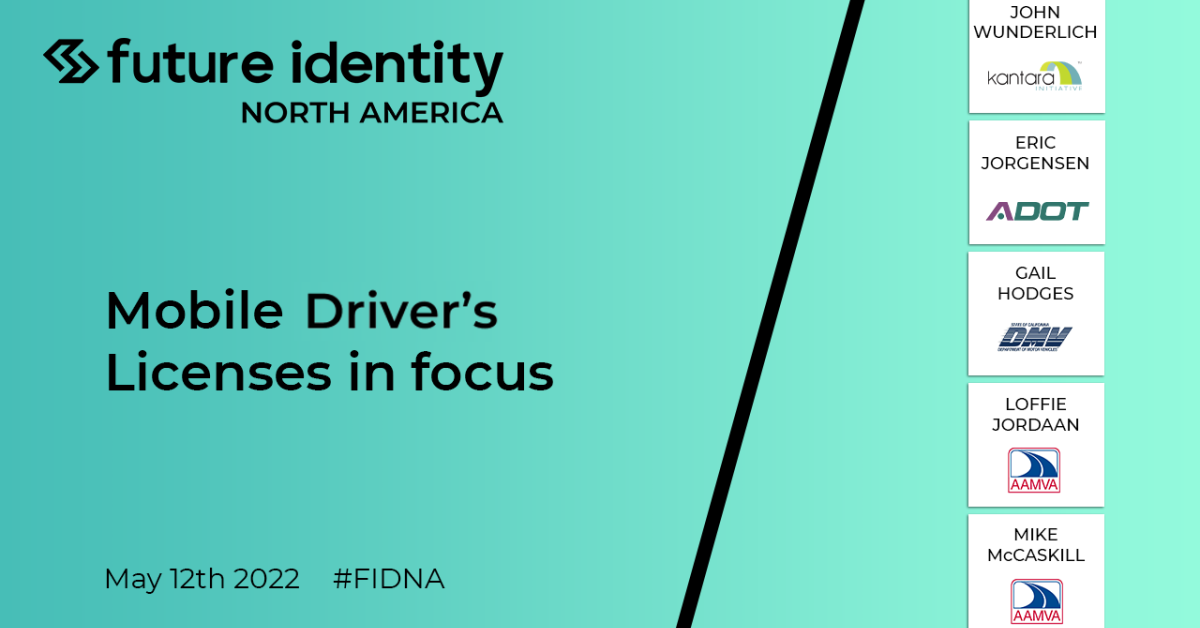The mobile driver’s license (mDL) has the potential to enhance user privacy, streamline travel and support identity proofing efforts for merchants, healthcare, banks, and law enforcement.
At Future Identity North America, we were joined by John Wunderlich, Chair of the mDL working group at Kantara, Eric Jorgensen from the Arizona Department of Transportation, Gail Hodges from California’s Department of Motor Vehicles, and both Loffie Jordaan and Mike McCaskill representing the American Association of Motor Vehicle Administrators (AAMVA).
They discussed how the ISO standard 18013 defines mDLs, how trust frameworks are supporting scalability, and how relying party networks can leverage progress. With various mobile driver’s license pilots underway across North America, several promising use cases have begun to emerge.
Gail Hodges notes that, “One of the champion use cases from a US market perspective is to have TSA acceptance rolling out nationally over the course of the next two years.” Gail explains that this could enable millions of Americans to use their mDL to go through state checkpoints. Beyond their use for domestic travel, mDLs have a range of other promising use cases, ranging from international to local scale.
Gail highlights that certain use cases will be more straightforward to implement than others, “With a really big use case like Walmart, to try and get coverage of all the Walmarts across American so that they could accept a mobile driver’s license for the purchase of alcohol, there’s a lot of complexity for them to be able to incorporate it into a complex payment ecosystem.”
A small, independent business on the other hand may be able to roll out the use of mDLs through an app allowing device-to-device exchange of information fairly quickly, but this comes with its own unique challenges. One thing to be aware of John Wunderlich warns, is when the burden is put onto the user to decide which information they choose to release without knowing enough about the authenticity of the entity they are sharing their data with.
John highlights that a reasonable level of friction is needed depending on the nature of a transaction. “People wanting to divulge information about themselves will feel disrespected if the process is friction free and will question what information is being taken from them,” he explains, “figuring out the UX for a reasonable and reassuring amount of friction is a hard problem, but if you get that right, then things start to work.”
The full session is now available to watch.
______________________________________________________________________
The conversation continues at the Future Identity Festival 2022, co-located with the Fintech Talentys Festival, on the 14th & 15th November, at The Brewery, London.


